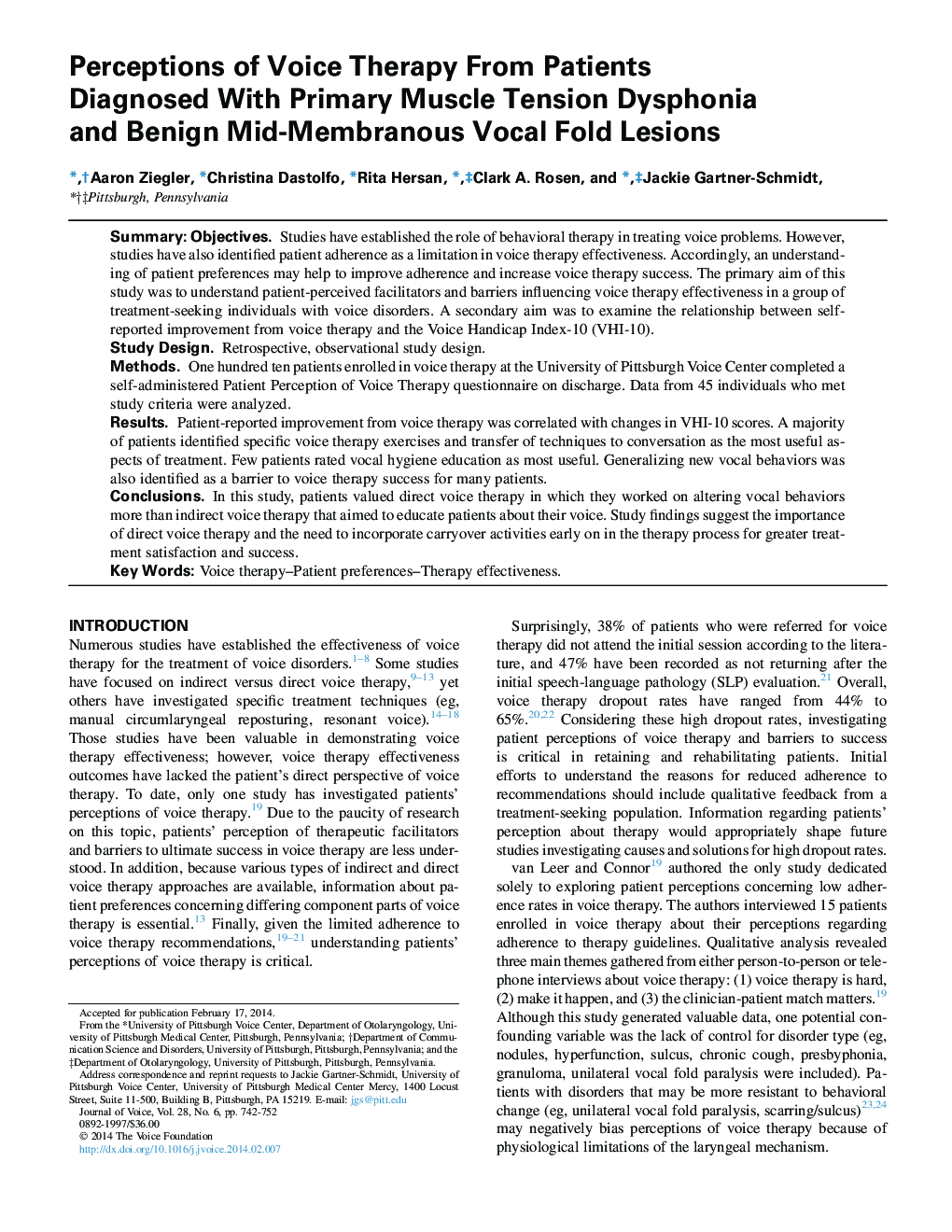| Article ID | Journal | Published Year | Pages | File Type |
|---|---|---|---|---|
| 1101612 | Journal of Voice | 2014 | 11 Pages |
SummaryObjectivesStudies have established the role of behavioral therapy in treating voice problems. However, studies have also identified patient adherence as a limitation in voice therapy effectiveness. Accordingly, an understanding of patient preferences may help to improve adherence and increase voice therapy success. The primary aim of this study was to understand patient-perceived facilitators and barriers influencing voice therapy effectiveness in a group of treatment-seeking individuals with voice disorders. A secondary aim was to examine the relationship between self-reported improvement from voice therapy and the Voice Handicap Index-10 (VHI-10).Study DesignRetrospective, observational study design.MethodsOne hundred ten patients enrolled in voice therapy at the University of Pittsburgh Voice Center completed a self-administered Patient Perception of Voice Therapy questionnaire on discharge. Data from 45 individuals who met study criteria were analyzed.ResultsPatient-reported improvement from voice therapy was correlated with changes in VHI-10 scores. A majority of patients identified specific voice therapy exercises and transfer of techniques to conversation as the most useful aspects of treatment. Few patients rated vocal hygiene education as most useful. Generalizing new vocal behaviors was also identified as a barrier to voice therapy success for many patients.ConclusionsIn this study, patients valued direct voice therapy in which they worked on altering vocal behaviors more than indirect voice therapy that aimed to educate patients about their voice. Study findings suggest the importance of direct voice therapy and the need to incorporate carryover activities early on in the therapy process for greater treatment satisfaction and success.
